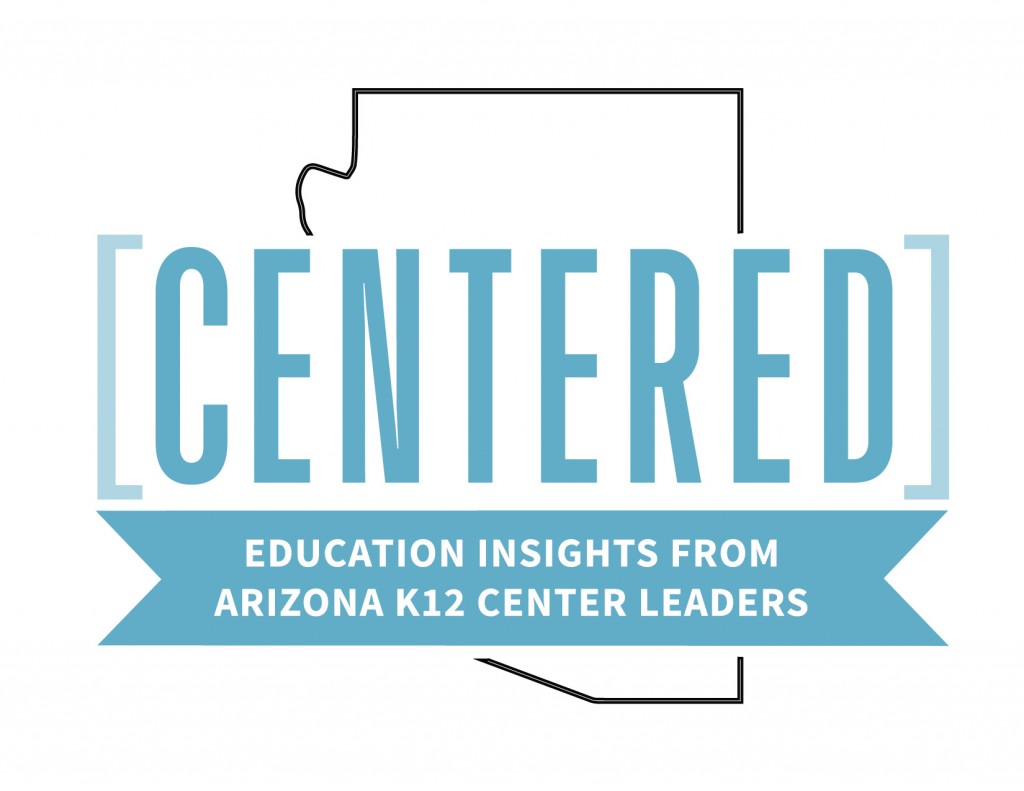April 24, 2018
Those Who Can, Teach
Centered: The Arizona K12 Center’s Executive Director, Dr. Kathy Wiebke, offers her education insights in this monthly column.
Since second grade I wanted to be a teacher. I remember thinking that is all I wanted to do. Even in college, while people were discouraging me from such a career — “You’re too smart to be a teacher” — I wanted to teach.
I remember an economics professor asking me what I really wanted to do with my life. I told him I wanted to teach. He asked me why I wasn’t in the College of Education. I vividly remember that moment. I told him, “Well, you know. Those that can, do, and those that can’t, teach.” As soon as the words were out of my mouth he said, “I never want to hear you say that again. Those that can, teach. I think you would be an amazing teacher.”
I started my teaching career in 1981. It fulfilled every expectation. I loved learning, the inquisitive nature of children, and the fact that no two days were the same. Soon after I signed my contract, I was asked to join the teacher’s union. I did not come from a union family but listened to the reasons to join. Frankly, I did not completely comprehend what I was joining, but everyone seemed to be so I thought it would be wise to do the same.
It took me a few years to fully appreciate and understand what belonging to the union meant, but never did I regret that move. I quickly came to understand that my working conditions were the learning conditions for my students. I worked in a great district that had a collaborative relationship with its school board and administration. As a young teacher, I remember hearing horror stories about the previous board who wanted to rate teachers at each building from 1 to whatever, with 1 being the best and that last number being the worst. I couldn’t imagine working in such an environment. It was my union that changed that policy. I remember thinking that I don’t know how I, as one person, could counteract such poor policy.
Over my career, I helped elect candidates for our school board, aided in getting the petitions signed of pro-education candidates, and when necessary, protested poor policies. I wrote my legislator on more than one occasion around issues facing our classrooms and kids. But never was I asked to vote on whether or not I would walk out of a job I loved.
I was stunned to hear that with more than 57,000 school employees voting, 78 percent voted to walk out on Thursday.
I often thought about this scenario. Would I have the resolve to walk out? I remember, as a young child, the teachers in my district going out on strike. I didn’t realize the implications nor understand the why. What I do remember was the rift it caused between employees.
During the last decade, cuts to Arizona’s K-12 education budget have been significant. By almost every measure we are toward the bottom. We have close to 2,000 classrooms without a teacher and more than 3,000 classrooms being “taught” by someone not meeting the standard work requirements. We have crumbling buildings and aging nvarchar(max)books. We have classrooms designed for 25 students with upward to 40 in them. The cuts have taken a toll on the entire system.
It is easy to have an opinion on something when you are not having to suffer the consequences. But I know teachers. Most of them became educators for the very same reasons I chose the profession. They love learning and working with children. Many of them think of their students as their own. They would do anything for them and many have done just that — whether it be buying supplies for the classroom, giving a kid lunch money, or spending weekends creating the perfect lesson.
I think about those in history who took a stand. Often, it was not popular nor politic. It was uncomfortable with many people casting aspersions. But for each of these people there was a catalyst that moved them to action. This funding crisis has been going on for so long that I have no idea what finally caused traction. In reality, I am not sure I would have had the courage to walk out, but I have to admit I am in awe of their commitment to the overall system. These teachers understand it is not just about them or the education support professionals, but rather it is about a system that has been woefully underfunded. These teachers want more for their kids and their schools. How can you argue that point?
I know the decision to walk out was not an easy one. I know there are many who are thinking “But, the children … How could you walk out on them? Is that what is best for children?” So, I ask: How is doubling up classes when no sub can be found best for children? How is it that we have salaries so low that we can’t hire qualified teachers best for children? How are outdated materials and crumbling buildings best for children? How is no longer having physical education teachers, librarians, counselors, and art teachers best for children?
It’s not.











